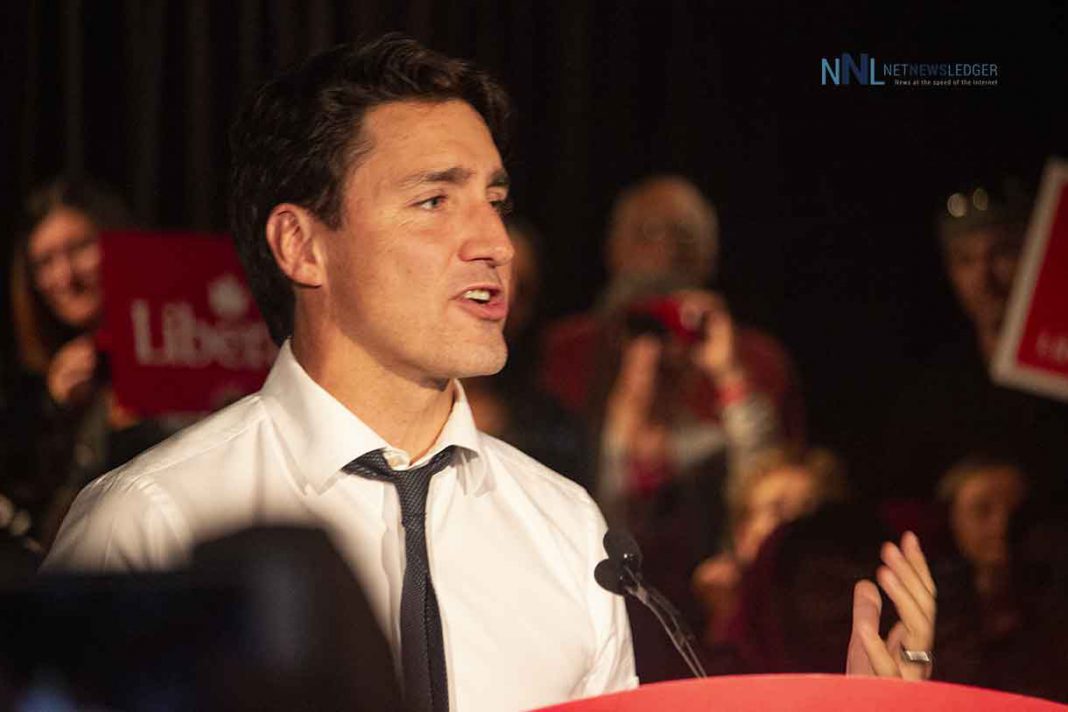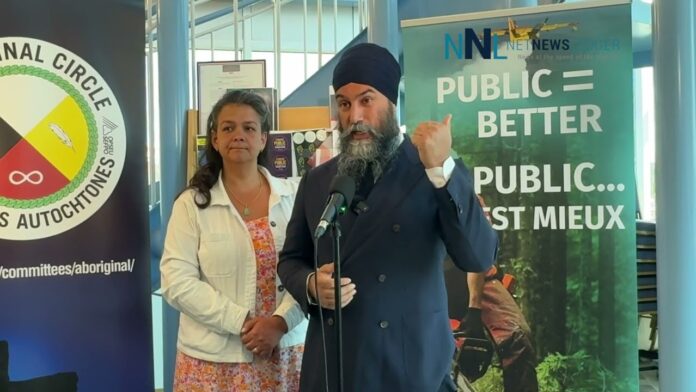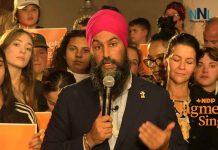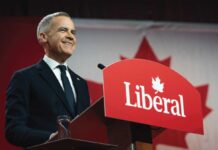THUNDER BAY – POLITICS – Canada’s political landscape has shifted as the New Democratic Party (NDP) has officially ended its “supply and confidence” agreement with Prime Minister Justin Trudeau’s Liberal government.
The agreement, which had propped up Trudeau’s minority since March 2022, is now over, as NDP leader Jagmeet Singh announced in a video posted to social media. The move raises the possibility of an early federal election before the next scheduled vote in October 2025.
The deal is done.
The Liberals are too weak, too selfish and too beholden to corporate interests to stop the Conservatives and their plans to cut. But the NDP can.
Big corporations and CEOs have had their governments. It's the people's time. pic.twitter.com/BsE9zT0CwF
— Jagmeet Singh (@theJagmeetSingh) September 4, 2024
NDP Leader Cites Liberal Failures
Jagmeet Singh, in his announcement, accused the Liberals of being “too weak, too selfish” to continue fighting for Canadians on critical issues. “They’ve let people down,” Singh said, citing failures to adequately address the housing crisis, inflation, and cost of living issues. While the agreement was designed to help the Liberal minority government pass confidence votes in exchange for progress on NDP priorities, Singh declared the deal no longer tenable.
The NDP leader suggested a vote of non-confidence is now “on the table” with each confidence measure. Should the Liberals lose a confidence vote in parliament, it could trigger a snap general election.
The New Democrats seem to feel their chances in an election could be better than the polls have shown. Singh is polling better than Poilievre in leadership likability.
Jagmeet Singh has faced sharp criticism from Poilievre in recent weeks who has claimed that the NDP leader was propping up the Trudeau Liberals only as a means to delay an election until his MP Pension would kick in.
Supply and Confidence Agreement Breakdown
The deal, formally struck in March 2022, was not a coalition, but rather an agreement that ensured NDP support for the Liberals in key votes, enabling Trudeau’s minority government to continue functioning. In return, the NDP secured significant concessions, including dental benefits for low-income families and progress toward a national pharmacare program.
The agreement allowed the Liberals to pass key legislation, even after failing to win a majority in the 2019 and 2021 federal elections. However, tensions between the two parties had been brewing in recent months. Singh’s decision to tear up the deal followed the Liberal government’s handling of labor relations, particularly the imposition of binding arbitration to end a work stoppage at Canada’s two largest railways, a move that upset NDP leadership.
Potential Impact on Northwestern Ontario
For Thunder Bay and the wider Northwestern Ontario region, an early election could significantly impact federal policy on key issues like healthcare, infrastructure, and support for Indigenous communities. Singh’s NDP has championed policies like national pharmacare and affordable housing, which resonate with many in this area. The region has also felt the pinch of rising inflation, unaffordable housing, and infrastructure needs—all hot-button issues that will likely dominate campaign discussions if an election is called.
The end of the agreement could place even more political uncertainty around funding and federal support for vital projects in Northern Ontario, such as Ring of Fire developments, affordable housing initiatives, and enhanced healthcare services. These are topics that have been crucial in discussions with local and provincial governments, and the abrupt shift in the federal political landscape might affect their progress.

Trudeau’s Response: Moving Forward Despite Challenges
Justin Trudeau, speaking to reporters at an event in Newfoundland on the same day as Singh’s announcement, expressed confidence in his ability to keep the government working. “I’ll let others focus on politics,” Trudeau said. “I’m focused on delivering for Canadians.” He also downplayed the possibility of an early election, stating that he hoped to continue working toward his government’s agenda until the fall of 2025.
In a fundraising appeal to Liberal supporters the Prime Minister wrote, “It’s a disappointing day for Canadians. Last week Pierre Poilievre called on Jagmeet Singh to rip up our supply and confidence agreement that has delivered so much progress for Canadians.
“Today Singh did as he was told, abandoning progressive policies and putting important programs at risk of Conservative cuts.
“Together, over the past two and a half years, our Liberal team has worked with the NDP in a divided minority parliament to build homes at a pace we haven’t seen in more than 50 years, deliver dental care for 500,000 Canadians, deliver free contraceptive and life-saving diabetes medication for 9 million Canadians through National Universal Pharmacare, build an economy that works for everyone, and so much more.
“In March 2022, when the agreement was reached, I said that we couldn’t let our differences stand in the way of delivering what Canadians deserve and need.
“But clearly, Jagmeet Singh and the NDP disagree. While they put politics over progress, we’ll keep moving forward for everyone.”
However, Trudeau’s confidence may be tested in the coming months, with the Liberal Party consistently trailing the Conservatives in national polls. Recent surveys suggest the Liberals are 18 points behind the opposition, reflecting voters’ dissatisfaction with economic issues such as inflation, rising housing costs, and growing concerns about affordability. These are issues that are also impacting Northwestern Ontario, where many are struggling with the rising cost of living.

Conservative Leader Poilievre Calls for Election
Meanwhile, Conservative Party leader Pierre Poilievre has called on Singh to force a vote of non-confidence. In an open letter, Poilievre accused the NDP of keeping the Liberals in power despite public frustration. “No one voted for you to keep Trudeau in power,” Poilievre said, dismissing Singh’s announcement as a “stunt.” Poilievre, who has been leading in the polls, is eager to capitalize on this momentum, hoping to force an election that could unseat the Liberals.
The Conservatives have been positioning themselves as the party that can address Canada’s affordability crisis. Rising inflation, sky-high rent and mortgage rates, and the cost of everyday goods have taken center stage in the political debate—issues that are particularly relevant to residents in Thunder Bay, where these challenges are keenly felt.
What’s Next for Canadian Politics?
The collapse of the NDP-Liberal agreement throws Canada’s political future into uncertainty. With Trudeau’s Liberals relying on NDP support for critical votes, the end of the deal means that every confidence measure could now potentially lead to a snap election. Singh’s NDP will now weigh its options carefully as it approaches future confidence votes.







